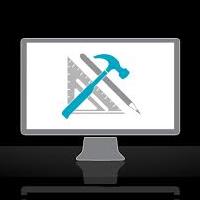Testers, Tech It Up! Become More Technically Competent

If change is one thing that is certain in life, then a continuous focus on learning, growing, and honing the skills of the testing role is an absolute.
In my early days as a tester, I had the option of becoming more technical or becoming more of a domain expert. On some projects I'd choose to assume more of a technical role, and on others I'd strive to learn all that I could about the business process and contribute as a subject matter expert. The technology you evaluate, of course, dictates your flexibility in this regard. The challenge of having one foot on the technical side and the other on the domain side is that you may only develop average competency in both.
As our technology-driven world becomes more complex, it's clear that the demand for more technical testing expertise is going up. I've written previously on roles such as test architect, test analyst, and test automator and the need for more technical talent driven by the Internet of Things, wearables, and mobile, embedded, cloud, big data, robotic, and even holographic applications. While there will always be a need for the expertise of domain specialists, we also need just as many, if not more, expert technical testing roles—particularly with programming skills.
Here are some ideas on developing additional technical expertise.
First, ya gotta commit. Get the time for learning on your calendar, set some milestones, and sign up for some training, whether it be a live classroom, a virtual classroom, self-paced learning, a web seminar, or downloading a book on Python (or whatever) and reading it. I just purchased my first Raspberry Pi and have set aside time to blow the dust off my programming skills.
Your current employer may or may not have the budget or approved training for you. Don't let this stop you. It's not your employer's (sole) responsibility to provide training dollars. An Intuit study predicted that by 2020, more than 40 percent of American workers would be independent contractors. It's your job to remain technically competent.
Visit the website of your favorite course provider and sign up for at least one training course in the next ninety days. Look for local, regional, national, and international conferences on software testing that offer technical testing courses.
You may have the flexibility in your current work environment to join different projects and assume new roles within the projects. Don't shy away from the more technical roles. Let the team know that you're willing and eager to learn, and then find a few teammates to partner with who will mentor or coach you. Agile teams normally have the benefit of assigning tasks to any qualified (or even willing) team members in the spirit of collaboration and continuous team learning.
Make it a goal for 2016 to become a more technical tester!

